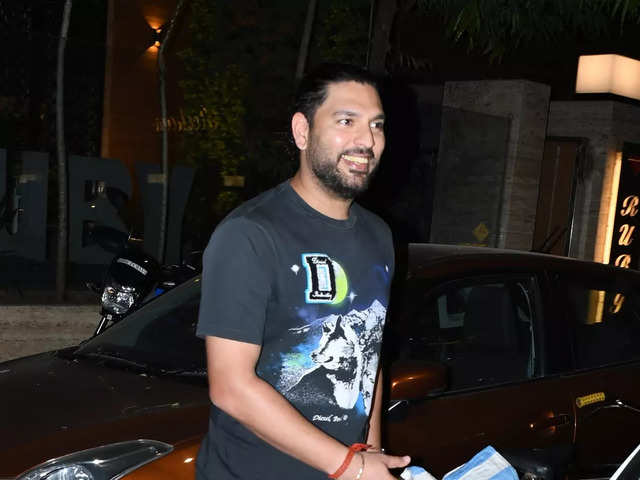
Manasi Narasimhan, VP and Head, Marketing and Communications, South Asia, MastercardBI India
How brands are navigating the new normal
Jun 4, 2020, 11:25 IST
brands
Marketing in the times of Covid-19: Mastercard
- In our latest interview series, we talk to brands to understand how they are coping with the new normal and their strategies towards navigating these difficult times.
Manasi Narasimhan , VP and Head,Marketing and Communications, South Asia,Mastercard tells us how the brand has been communicating with its target audience and letting them know about the benefits of contactless payments.
With the Covid-19
A recent report by PwC revealed that while
Another survey of 42,000 respondents conducted by consultancy firm Local Circles revealed that the lockdown benefited digital payment platforms with 42% of Indians having increased the use of digital means during the first few weeks of the lockdown.
With an increase in overall digital payments, contactless payments are also seeing a surge and Mastercard has been working on educating consumers about the benefits and importance of contactless payments, Manasi Narasimhan, VP and Head, Marketing and Communications, South Asia, Mastercard tells us.
Excerpts:
Q) Owing to the lockdown, digital transactions have seen an uptick. How have things been for Mastercard in the period following the lockdown? What kind of impact has the lockdown had on you?
We are living in uncharted times. Balancing the need to protect ourselves and maintain our daily lives is the challenge facing everyone around the planet. Due to the uncertainty that lies ahead, people are learning that they must make different choices. This includes how we pay. At Mastercard, we remain committed to accelerate digital payments throughout.
With the lockdown we’ve all become conscious about our health and sanitation habits and are avoiding crowded places. Online shopping is becoming the new way of buying essentials. Under normal circumstances, contactless cards would provide an easier and safer way to pay. In unusual times like these, the benefits they provide are even more valuable.
Contactless cards are also safe and secure. They work with EMV secure chips and each contactless transaction includes a unique code that changes with each purchase to ensure that your details and transactions are secure. Even if you tap your card more than once for a single purchase, the transaction only takes place once, keeping you covered from unintended usage. You also get instant alerts for every transaction always keeps you notified of your card’s usage. While transacting through contactless cards, you are always in control as you don’t need to hand over the card at the payment counter.This contactless technology also empowers some of the most financially vulnerable with a safe and secure way to make and receive payments.Hence, we continue in our endeavor to educate the customer on the benefits and importance of contactless payments.
Q) Have there been any interesting consumer trends you have observed in the lockdown period?
In the current environment,it is relatively safe and easy to do online shopping. Hence this is one trend that I see picking up. In physical stores, there is an uptick in contactless payments as well. In fact, a report by Local circles mentions that 42% of Indians have increased digital payments during the lockdown, bringing a lot of first-time users, who were not tech savvy, closer to the digital payment’s ecosystem as well. Consumers are aware of contactless deliveries and are availing such doorstep delivery for their essentials. There is also an increased focus on health, hygiene and well-being.
Q) As a marketer, what has your priority been in these last few weeks?
My priority remains to be in touch with my teams and agency partnersand I have done this effectively through virtual meetings. Even when life recovers post Covid-19, I think these virtual sessions will be here to stay, ensuring business continuity in the new normal.
I am also focused on how our business can serve our customers even during these times. We continue to educate the consumer and merchants on the benefits of contactless cards and digital payments. We also continue to educate the consumer on safety of digital payments and are committed to creating innovative payments solutions that deliver enhanced safety and security at every touchpoint, to enable simple, frictionless consumer experiences. I believe that once consumer and merchant behavior changes, it will transform the ecosystem.
Q) How have you been engaging and communicating with your consumers during this period?
We have undertaken various initiatives to engage with our consumers in this new normal. We are now comfortable with virtual meetings and calls and are constantly brainstorming on ways in which we can connect with our stakeholders. For us collaboration is key and we are working closely with all our stakeholders including banks and merchants to promote safety of using cards to shop online. We are educating customers through social media campaigns and use of various celebrities and influencers on contactless technology. It works best since there is no physical touch that is required – ensuring personal safety along with minimizing the risk of payment fraud. We also continue to work with small businesses to offer them free tools that will help them better track and manage expenses and help them digitize which will be a requirement in the new normal.
We have also come out with various campaigns during this time. Our campaign #ThankYouVyapaariyo was developed specially to thank small merchants. This campaign was an extension of our strategic goal of enabling 10 million merchants with digital payments acceptance infrastructure and financial literacy by end 2020. Similarly, we are exploring new ways of engaging with the audience with snackable content like listicles, videos and webinars.
Q) How did your media mix evolve during the period? Most brands are digital and TV heavy right now. Is it the same for you?
Our focus continues to be Digital & TV. With any campaign that we undertake, the objective is always to first create awareness, comprehension and then behavioral change. Television has the best track record of behavior change, of salience and brand recall. Digital is also something that is part of the mix especially seeing its growth and reach during the lockdown. We are also open to use influencers to spread our message. I always say that the media mix really depends on the objective.We are open to anything as along as it works for the audience, works for our message and delivers us return on investment. Those are the only three criteria that one would have.
Q) What have your key learnings been from this experience so far?
The current situation has made me believe more than ever that while marketers need to stay relevant, they cannot be opportunistic but seek more to serve the customer. Brand and corporate reputation while hard to measure becomes an asset in times of crisis. At such times customers turn to what they know and it is critical to maintain the trust of our customers. This will help them to stick by us in good times and bad.
Q) There is now hope that things will slowly go back to normal now. How are you, as a brand, preparing for the post-Covid world?
I believe this is an opportunity for us as a brand to show that we genuinely care about our customers and stakeholders. We will continue to extend our expertise to all the stakeholders we work with including banks, merchants, retailers, those in the e-commerce industry and help them to transition smoothly to the new normal.
Since more than 80% retail transactions in India are below ₹2000, we will continue to educate the consumers that contactless cards are the best way to make super quick, safe and secure payments. We will work towards helping merchants optimize their consumer experience, especially regarding queue management, cashier throughput, cash handling and associated logistics. We will also communicate consistently with timely updates and information on our business continuity plans. This will help us as a brand to evolve and endure during these difficult times.
Q) How have you made sure that your marketing communications during this period did not come across as opportunistic?
I have been especially focused on this and as a brand I feel we need to continue to support our customers. Consistent communication with a humane approach is the need of the hour. Customers can see through opportunistic communication that only seeks to sell. During these times, every action you take could be good or detrimental to your brand. However, by using empathy to craft an informative social media campaign or internal communication campaign, you could reach your audience in an authentic way and build trust.
Q) What are a few things that a marketer should be careful about and keep in mind during times of crisis?
As a marketer, one needs to always be vigilant about protecting their brand reputation and more so during times of crisis. While everyone is adjusting to the new normal there are many risks that can arise. This includes brand reputation risks, brand safety risks, privacy risk, cybersecurity risks, financial risk, all within the context of marketing.Moreover, I feel that intelligent brands will realize they need to activate their purpose now. If brands start communicating authentically, they will be perceived as trustworthy and this will help them gain in the long term. Consumers will have less patience for brands that are looking for immediate gains. Brands that understand their customers in a crisis and stand by them will significantly increase affinity for themselves.
And as everything goes online and there is a rise in the number of interconnected devices,another thing we will need to keep in mind is the importance of data privacy. There is an imperative and opportunity to protect the digital ecosystem. As a financial brand we recognize the importance of earning and maintaining the trust of our customers, cardholders and consumers and we need to be even more vigilant now.
INSIDER INTELLIGENCE REPORTS







